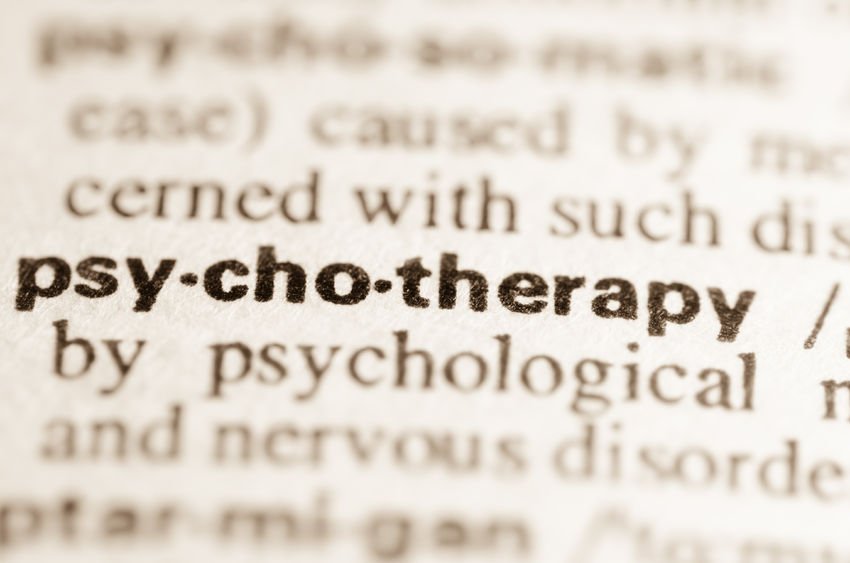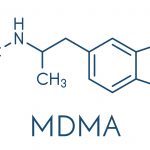Psychotherapy for Brain Rewiring
New research1 is showing that successful treatment of social anxiety disorder actually alters key brain structures that are involved in processing and regulating emotions. In individuals with social anxiety disorder, frontal and lateral brain areas are often impaired – key centers for the conscious processing of thoughts and emotions. Strategies which concentrate on restoring balance between these areas of the brain and deeper, more subconscious emotional centers seem to help. For this reason, cognitive behavioral therapy (CBT) has become a central therapy for social anxiety disorder. 1,2 Studies are beginning to show that structural changes in the brain do occur from this sort of psychotherapy. This recent study has been conducted on 10-week courses).
A Pretty Popular Struggle for Some
Some estimates say that as many as 10% of the population struggle or suffer from social anxiety, which may manifest as increased sweating, heart palpitations, nervousness, and generalized discomfort from being in a social situation. Needless to say, these individuals tend to avoid crowds, and sometimes even intimate gatherings can be trying. This is often not a question of introversion versus extroversion, but actually hinders people’s lives by affecting their work performance, school performance, and certainly increasing their stress level on a sometimes daily basis. When this anxiety significantly impairs everyday life and causes intense suffering, a diagnosis of social anxiety disorder may be given.
One-on-One Counseling for the Win
It is exciting to consider that participating in a few months of one-on-one counseling using specifically directed approaches could actually help rewire the brain to move past these social obstacles. Many people are taking pharmaceuticals which could be detrimental to the same brain structures in question, which is not curing anything. This research is offering up a genuine treatment of the underlying cause of this suffering.
Cognitive Based Therapy has become a Central Therapy for Social Anxiety Disorder
In addition, it is likely that this sort of therapy is helping individuals in many other areas of their lives. One-on-one CBT based therapy offers insight into how we process thoughts into actions, which, core to understanding, is how we interact with the external reality we see on a daily basis. By gaining more insight into this process, individuals are not only gaining more confidence in social situations, but learning more about who they are as human beings, their sense of self2 – how can this not have profoundly beneficial outcomes? It’s probably something where those of us who don’t struggle with social anxiety could also benefit.
Sources:
1.Steiger V, Brühl A, Hänggi J, et al. Pattern of structural brain changes in social anxiety disorder after cognitive behavioral group therapy: a longitudinal multimodal MRI study. Molecular Psychiatry, 2016. doi:10.1038/mp.2016.217
2.Gregory B, Peters L. Changes in the self during cognitive behavioural therapy for social anxiety disorder: A systematic review. Clin Psychol Rev. 2016;52:1-18. doi: 10.1016/j.cpr.2016.11.008.
 Node Smith, associate editor for NDNR, is a fifth year naturopathic medical student at NUNM, where he has been instrumental in maintaining a firm connection to the philosophy and heritage of naturopathic medicine amongst the next generation of docs. He helped found the first multi-generational experiential retreat, which brings elders, alumni, and students together for a weekend campout where naturopathic medicine and medical philosophy are experienced in nature. Three years ago he helped found the non-profit, Association for Naturopathic ReVitalization (ANR), for which he serves as the board chairman. ANR has a mission to inspire health practitioners to embody the naturopathic principles through experiential education. Node also has a firm belief that the next era of naturopathic medicine will see a resurgence of in-patient facilities which use fasting, earthing, hydrotherapy and homeopathy to bring people back from chronic diseases of modern living; he is involved in numerous conversations and projects to bring about this vision.
Node Smith, associate editor for NDNR, is a fifth year naturopathic medical student at NUNM, where he has been instrumental in maintaining a firm connection to the philosophy and heritage of naturopathic medicine amongst the next generation of docs. He helped found the first multi-generational experiential retreat, which brings elders, alumni, and students together for a weekend campout where naturopathic medicine and medical philosophy are experienced in nature. Three years ago he helped found the non-profit, Association for Naturopathic ReVitalization (ANR), for which he serves as the board chairman. ANR has a mission to inspire health practitioners to embody the naturopathic principles through experiential education. Node also has a firm belief that the next era of naturopathic medicine will see a resurgence of in-patient facilities which use fasting, earthing, hydrotherapy and homeopathy to bring people back from chronic diseases of modern living; he is involved in numerous conversations and projects to bring about this vision.





